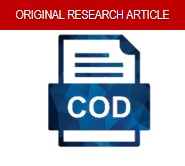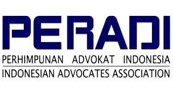Why Do Drivers Still Go Against Traffic Flow?
A Study of Regulations, Social Responses, and Perspectives from Islamic Political Jurisprudence (Siyasah Fiqh)
DOI:
https://doi.org/10.46924/jihk.v7i1.292Keywords:
Traffic violations, Fiqh siyasah, Local governance, Public justiceAbstract
The prevalence of traffic violations, particularly wrong-way driving, in the strategic areas of Bandar Lampung City highlights the limited effectiveness of local regulatory efforts in managing urban traffic behavior. This study aims to assess the implementation of Bandar Lampung Mayor Regulation No. 01 of 2018 and examine it through the lens of fiqh siyasah tanfīdhīyah (Islamic administrative governance). Employing a qualitative approach with a descriptive-analytical method, data were collected through field observations, in-depth interviews, and document analysis. The findings reveal that the enforcement of the regulation remains suboptimal due to inadequate public outreach, weak institutional oversight, and low levels of legal awareness among the public. From the perspective of fiqh siyasah tanfīdhīyah, the policy’s implementation does not fully embody the principles of justice, public welfare (maslahah), and administrative responsiveness. This study underscores the necessity of a collaborative, multi-stakeholder approach involving governmental authorities, community leaders, and road users to foster more effective and equitable traffic governance
Downloads
References
Journals
Andika, Gregorius, and Indra Fibiona. “Sustainable Urban Cultural Heritage Policy in the City of Yogyakarta, Indonesia.” Journal of Heritage Management, 2025. https://doi.org/10.1177/24559296241302986.
Chatterjee, Moyukh. “The Impunity Effect: Majoritarian Rule, Everyday Legality, and State Formation in India.” American Ethnologist: Journal of the American Rthnological Society 44, no. 1 (2017): 118–30. https://doi.org/10.1111/amet.12430.
Fahimah, Iim, Suwarjin Suwarjin, Wery Gusmansyah, Zubaedi Zubaedi, and Jayusman Jayusman. “Interfaith Inheritance in Muslim Families in Indonesia: Practices, Philosophy, and the Direction of National Inheritance Law Development.” Ahkam: Jurnal Ilmu Syariah 24, no. 2 (2024): 379–96. https://doi.org/10.15408/ajis.v24i2.40907.
Fitriyanti, Vivit, and Isnaini Aulia Ramadhana. “Implementasi Undang-Undang Nomor 22 Tahun 2009 Tentang Lalu Lintas Dan Angkutan Jalan Dalam Perspektif Siyasah Dusturiyah: Studi Pada Pengguna Lajur Sepeda Di Kota Balikpapan.” Qonun: Jurnal Hukum Islam Dan Perundang-Undangan 7, no. 2 (2023): 155–96. https://doi.org/10.21093/qj.v7i2.7369.
Haryanto, Handrix Chris. “Kepatuhan Terhadap Peraturan Lalu Lintas Para Pengendara Di Perkotaan.” Inquiry: Jurnal Ilmiah Psichologi 4 (2019): 39–46.
Ibrahim, Avid Wahyudi, Ibrahim Ahmad, and Roy Marthen Moonti. “Analisis Tantangan Dan Hambatan Dalam Penegakan Hukum Angkutan Antar Provinsi.” Politika Progresif: Jurnal Hukum, Politik Dan Humaniora 1, no. 4 (2024): 60–72. https://doi.org/10.62383/progres.v1i4.983.
Jabar, Abdul. “Responsibilitas Hukum Islam Dalam Menghadapi Tantangan Globalisasi.” Tahkim: Jurnal Hukum Dan Syariah 9, no. 1 (2013): 60–73. https://doi.org/10.33477/thk.v9i1.89.
Kapucu, Naim, Yue Ge, Emilie Rott, and Hasan Isgandar. “Urban Resilience: Multidimensional Perspectives, Challenges and Prospects for Future Research.” Urban Governance 4, no. 3 (2024): 162–79. https://doi.org/10.1016/j.ugj.2024.09.003.
Novita, Adinda Reza, Yufi Wiyos Rini Masykuroh, and Hasanuddin Muhammad. “Implementasi Pasal 9 Peraturan Walikota Bandar Lampung Nomor 43 Tahun 2021 Tentang Peran Dinas Pekerjaan Umum Dan Penataan Ruang Kota Bandar Lampung Terhadap Perbaikan Jalan Perspektif Fiqh Siyasah Tanfidziyah: Studi Di Kelurahan Waydadi BaruKecamatan Suk.” Demokrasi: Jurnal Riset Ilmu Hukum, Sosial Dan Politik 1, no. 4 (2024): 77–93. https://doi.org/10.62383/demokrasi.v1i4.482.
Nurain, Siti Nur Syahidah Dzatun. “Prinsip Keadilan Sosial Dalam Islam: Studi Teks Al-Qur’an Dan Hadis.” Journal Interdisipliner Sosiologi Agama 4, no. 1 (2024): 35–51. https://doi.org/10.30984/jinnsa.v4i1.1048.
Putri, Indriani Anggita, Agus Ananda, Febra Anjar Kusuma, Leonardus Pandu Priambodo, and Susilo Susilo. “Analisis Penyebab Dan Dampak Pelanggaran Lalu Lintas Melawan Arus U-Turn Universitas Lampung.” Jurnal Kajian Hukum Dan Kebijakan Publik 2, no. 2 (2025): 1005–9. https://doi.org/10.62379/4s4hbw68.
Rahmandha, Yuman, Thoha Andiko, and Imam Mahdi. “Implementasi Peraturan Pemerintah Nomor 94 Tahun 2021 Tentang Disiplin Pegawai Negeri Sipil Perspektif Fikih Siyasah Tanfidziyah.” Journal of Sharia and Legal Science 2, no. 2 (2024): 300–320. https://doi.org/10.61994/jsls.v2i2.406.
Setiawan, Zenal, and Irwansyah Irwansyah. “Prinsip-Prinsip Fiqh Siyasah.” Jurnal Cerdas Hukum, 2, no. 1 (2024): 68–75. https://e-journal.institutabdullahsaid.ac.id/index.php/jurnal-cerdas-hukum/article/view/219.
Books
Miles, Matthew B., A. Michael Huberman, and Johnny Saldana. Qualitative Data Analysis: A Methods Sourcebook. New York: SAGE Publications, Inc, 2018.
Saebani, Beni Ahmad. Fiqih Siyasah Pengantar Ilmu Politik Islam. 1st ed. Bandung: CV Pustaka Setia, 2008.
Downloads
Published
Issue
Section
License
Copyright (c) 2025 Salwa Putri Aliffa, Ahmad Sukandi

This work is licensed under a Creative Commons Attribution 4.0 International License.
Authors who publish with this journal agree to the following terms:
- Copyright on any article is retained by the author(s).
- The author grants the journal, the right of first publication with the work simultaneously licensed under a Creative Commons Attribution License that allows others to share the work with an acknowledgment of the work’s authorship and initial publication in this journal.
- Authors are able to enter into separate, additional contractual arrangements for the non-exclusive distribution of the journal’s published version of the work (e.g., post it to an institutional repository or publish it in a book), with an acknowledgment of its initial publication in this journal.
- Authors are permitted and encouraged to post their work online (e.g., in institutional repositories or on their website) prior to and during the submission process, as it can lead to productive exchanges, as well as earlier and greater citation of published work.
- The article and any associated published material is distributed under the Creative Commons Attribution 4.0 International License



 Sinta ID:
Sinta ID: 


















